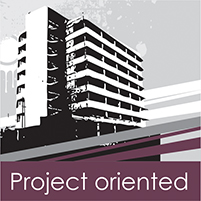With competition across all sectors steadily increasing as well as the challenge of having to respond to constantly changing demands from customers, organisations now need to deliver projects faster and with a greater success rate than ever before.
So says Andre Nortier, managing director of TenStep Southern Africa, specialist in consulting and training in business methodologies and local PPO partner, who maintains that, because of these mounting pressures, increasing numbers of companies are choosing to become more project-oriented.
“Becoming a project-oriented company requires a business culture change,” he states. “This involves not just the project manager, but requires a ‘top-down’ approach, starting with commitment and involvement from top management.”
Nortier believes that, in order to make this type of business transformation, companies would need to implement a project management office (PMO) aligned to the proper guidelines, like those set out by the Project Management Body of Knowledge (PMBOK), and with the correct processes and methodologies in place.
“As a global company with a methodology based on international best practice, this is where a company like TenStep comes in,” he explains.
Essentially, TenStep’s approach can be defined by ten straightforward steps:
- Define the work;
- List item one text;
- Build the schedule and budget;
- Manage the schedule and budget;
- Manage issues;
- Manage scope;
- Manage communication;
- Manage risk;
- Manage human resources;
- Manage quality and metrics; and
- Manage procurement
“The TenStep project management process is a methodology for managing work as a project. Its flexible and scalable approach is applicable for both smaller and larger, more complex projects and means that it can be used by organisations across all sectors.”
By using this type of process and methodology, organisations can enhance project management capabilities and maturity. “This in turn allows them to deliver against customer expectations and requirements,” says Nortier. “It also enables them to reduce the cost of delivering services by removing the probability of rework, which concurrently improves their reputation in terms of being able to deliver services and projects within requirements the first time.”
One of the biggest benefits of using a common methodology is the value of re-use. Once the processes, procedures and templates are created, they can be used (with small modifications) on all projects in the future. This results in reduced project start-up time, a shorter learning curve for project team members and time savings from not having to reinvent processes and templates from scratch on each project. “Many projects experience problems because there is a gap between what the client expects and what the project team delivers,” he explains. “Using a methodology results in better project planning, which gives the team and the sponsor an opportunity to make sure they are in agreement on the major deliverables produced by the project.”
Furthermore, TenStep includes processes to identify and manage risks. Sound risk management processes will result in potential problems being identified and managed before the problems actually occur. It also contains quality management processes that will help the team understand the needs of the customer in terms of quality. Once those needs are defined, the team can implement quality control and quality assurance techniques to meet the customer expectations. “This type of approach is a particularly good fit for South African business, where the tendency is already towards introducing worldwide accepted best project practice. It is also key for the rest of the African continent, where the need for project management is currently exploding.”
Nortier says that the use of a proven project management system like PPO in tandem with TenStep’s offering, greatly assists in enhancing work performance and communication within a project-oriented business. “The ability to provide an accurate project or work status at any time gives a company enough information to make faster, more effective decisions to steer projects in the right direction.
“The solution created by TenStep and PPO incorporates international methodology with a local best of kind project management information system that understands the unique way that South African business operates, providing a global track record with a workable local information system. It is already being used to great success within the local marketplace, by local businesses such as Sperosens and Muvoni Weltex.”
In fact, the upcoming TenStep 2011 World Conference, to be held for the first time on African soil in Cape Town, South Africa from 29 September to 1 October this year, will feature a case study presentation examining the successful rollout of the TenStep/ PPO solution at these two client sites. The conference is a critical session that sees global representatives of TenStep meeting on an annual basis to discuss strategy as well as product enhancements and development.
As an international company with offices in 34 different countries, TenStep’s focus on Africa is growing. Its African head office is based in Centurion, Pretoria, South Africa, with representation in Durban and Cape Town, as well as offices in Tanzania and Nigeria. TenStep is also planning on spreading its reach more broadly across the African continent.
Contact: TenStep SA, Andre Nortier, (012)6622 543, andre@tenstepsa.com



